Disingenuous worldwide pandemic of Severe Acute Respiratory Syndrome Coronavirus 2 (SARS-CoV-2) has led to burgeoning of preventive measures such as Covid Appropriate Behavior (CAB) including social distancing, wearing masks, sanitization of hands. Further, Pandemic has brought to stand still all economic activities and has greatly affected the poor. Livestock including poultry sector was severely affected during the pandemic. It was not only the performance of the livestock but also disposal of livestock produce-milk, meat and eggs was affected, thus greatly affecting livestock farmer’s livelihood and income.
The current pandemic of COVID-19 again emphasized the issue of food safety and the inextricable relationship between animals and humans. Almost 60% of infectious diseases and 75% of emerging diseases (many of them have wild animals as reservoir hosts) are transferred from animals to human beings. The diseases which are transferred or originated from animals to human beings are known as Zoonotic diseases. In the last two decades, there were many zoonotic diseases such as Bovine Spongiform Encephalopathy (BSE), Severe Acute Respiratory Syndrome (SARS), Nipah virus and Middle East Respiratory Syndrome (MERS–COV), Avian influenza, swine fever etc. which have widespread global impact leading to great economic losses and human life. Epidemiology of many of these diseases is associated with meat and meat markets frequently known as “Wet meat markets” and said to be originated from Wuhan city, China. The wobbly sanitary wet meat markets are flooded with exotic animals such as bats, snakes and pangolins probably favored the transmission of this deadly infectious viruses from the Corona group i.e., SARS-CoV-2, between animals and from animals to humans. This situation has threatened the food safety and food security of animal based food products. In addition, the emergence of new zoonotic diseases, their high morbidity rate and the future risks of epidemics/pandemics congregate to make it imperative and essential for veterinarians to share the responsibility to identify and reveal the risks, critical points and other epidemiological aspects implicated in the transmission of such deadly infectious agents from the animal, environment and human interfaces.
COVID-19 crisis has revealed the hidden and underutilized potential of veterinarians in the society. This crisis has presented a colossal challenge as well as an indubitable opportunity for the role and leadership of veterinarians in ‘One health’ program and to improve farmer’s opulence.
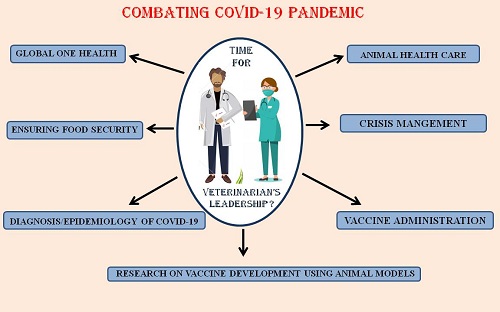
There are four major aspects in which veterinarians are playing a vital role and can lead in the world in the fight against COVID-19 in our country as well as at the global level.
Public health with focus on “One health” and food security
Veterinarians across the globe are engaged in focusing on the emerging and reemerging pathogens that present challenges for public health systems worldwide. Despite the amalgamation of the OIE (now known as World organization for Animal Health) and the WHO in the context of “One Health concept” in 1960, the idea is still poorly explored in underdeveloped countries. Also, in 2009, the Centers for Disease Control and Prevention (CDC) became the first and by far the only centralized agency to establish an office dedicated to one-health activities, both nationally and internationally. Therefore, to help fill the gaps in the knowledge pertaining to COVID-19, the focus on veterinary public health in collaboration with human health is important to understand its spread, pathogenesis and prevention among humans. The implementation of action plan would allow the early recognition of potential pathogens and the development of further strategies for the control and eradication program. Veterinarians working in the field of microbiology/immunology/biotechnology have ample proficiency to explain the intricacies of diseases and development of vaccine using animal models to safeguard human and animal health. Several animal scientists have used computational models and studied cells and whole animals to identify the species most vulnerable to infection with SARS-CoV-2. For instance, Indian veterinarians from GADVASU and Sydney School of Veterinary Science developed animal disease models to study several factors like pressure on ecosystems, climate change and disease outbreaks.
Food security is indispensable to health and economic growth. The link between food security and global security is undeniable. Veterinarians with the proficiency in food animal production system and disease diagnosis will help in preventing future pandemics and maintaining public health. Recently, in October 2020, acknowledging the work and role of veterinarians, the American Association of Public Health Veterinarians (AAFSPHV) started Food Safety and Public Health Veterinarian of the Year Awards for their work before, during, and after the pandemic. Therefore, veterinarians need a seat at the table of deliberations on strategies and future perspective to improve national and global food security action plans and ensuring food safety efforts for emergency operations.
Diagnosis and Research
Veterinarians strengthening their role in this COVID-19 crisis are also actively involved in the diagnosis of this deadly disease throughout the country as well as globally. The efficient team of veterinarians at Guru Angad Dev Veterinary Sciences University, Ludhiana was also a pioneer in our country in joining hands with medical practitioners and contributing in the disease diagnosis to cater to increasing need of testing with the establishment of COVID Testing center. The OIE, the WHO and the US Centers for Disease Control and Prevention have all published several guidelines on surveying the animals. The monthly OIE meets are being organized to discuss the latest ongoing research and future plans on animals in the pandemic. Their meetings now are focused on the discussions about the new variants circulating in the humans. As, for over 50 years, the animal health industry has used vaccines effectively to prevent IBV in poultry by using several available vaccines which provides protection against several variants of infectious bronchitis. Therefore, several veterinarians are actively involved in the research associated with vaccine development by using animal models like primates and mice to conduct trials. Based on these trails on animal models, the vaccine can be declared safe further for human use. Apart from that, veterinarians have been authorized in several countries across the globe to take part in administration of vaccine to people as front liners working at par with human health workers.
Animal health and pet care
Veterinarians have always been on the front lines, educating farmers, pet owners and the public about zoonotic diseases and to combat COVID-19 crisis. Veterinarians have been following CDC guidelines for animal health care and related to COVID-19 diagnosis. The veterinarians provided timely help to owners during lockdown period both by telemedicine as well as in-person in the cases of emergencies. The viral outbreaks in domestic and farm animals can be less troublesome because such eruptions can be kept in check through proper quarantine, vaccination and culling of the affected animals. As it is documented that viruses of Corona family affects felines, however, regarding Covid-19 very few sporadic cases have been noted globally. Pig, being mixing vessel for influenza viruses, need to be constantly monitored for emergence of any type of clinical symptoms especially in areas reported with Covid-19 cases. However, if the virus spreads in wild animals, it becomes much more difficult to contain with almost feeble hope for eradication. Wildlife studies are difficult as the animal infections have not been a priority for much of the research community since long. For instance, the wild mink that tested positive in Utah “could just be the tip of the iceberg”, reported by several veterinary epidemiologist at Texas A&M University as they say “The more we look, the more we might find.”
Education
The idea of imparting has changed completely during this COVID-19 pandemic crisis. With the vision that student’s learning should not hamper, several veterinary institutions has come up with timely start of classes through virtual modes. It includes several webinars, live interactions on practical areas of concern for budding veterinarians apart from their routine subjective areas. Various veterinary education videos were developed, GADVASU has started their ‘YouTube channel’ for the benefit of students, veterinarians and farmers. Several free workshops, demonstrations are being shown to learners through video lessons at the click of a button with learner being at their home. The whole motive is that learning in this crisis should never stop and budding mind should be prepared to contribute in the crisis as well. Also, student’s vocational education and training along with the research activities were and are being focused so that priority research activities keep going. The learners are encouraged to have a multidisciplinary approach to be able to contribute in combating this pandemic which is the need of the hour.
To utilize the potency of veterinarians in COVID-19 crisis management, vets are currently being roped in to commence the vaccination program along with dissemination of proper guidance to educate the common people about COVID-19 vaccination due to reluctance in some sections of the society towards vaccination. The veterinarians in our country are also instrumental in providing essential and emergency services throughout the pandemic by following proper standard operating protocols (SOPs) of COVID given by ICMR or central government. Additionally, being from rich scientific background and playing numerous different duties, a veterinarian’s essential role in management of COVID-19 crisis can’t be ignored. Therefore, due to surfacing of second fatal wave of COVID-19, it’s decisive to prioritize and utilize the prospective services by a veterinarian.
Conclusion
To conclude, the veterinarians’ potential role in fighting this COVID -19 pandemic, it will be convenient to bring up for our society that veterinarians are not merely the doctors of animals or pets, there is much more to it. A Veterinarian is an integral and indispensable part of the global health as he/she offers diverse roles not only related to the health and welfare of animals but prevention, management and control of spread of zoonotic diseases as well that further affects human health. So, definitely with collaborative approaches associated and based on pillars of one health, veterinarians will be leading the wagon of One health in near future.


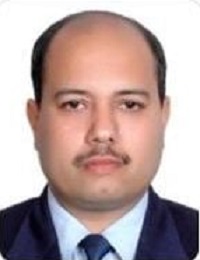
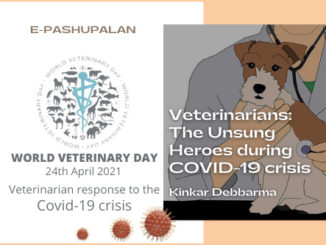
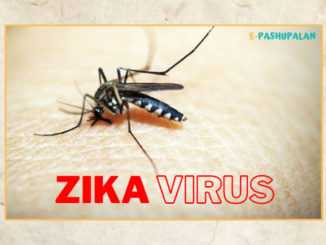
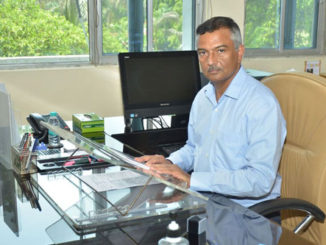

Be the first to comment